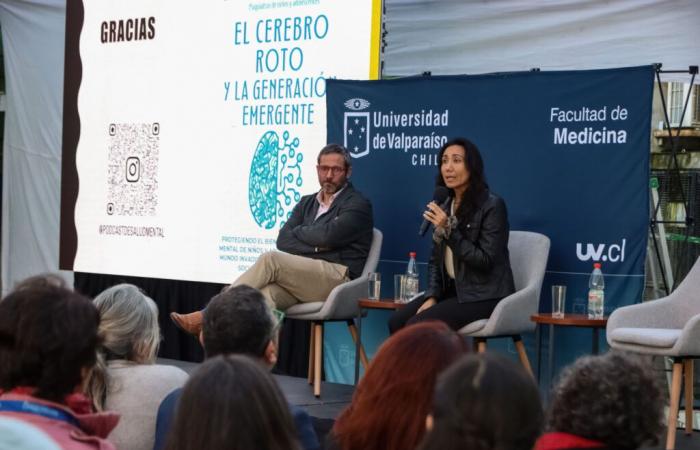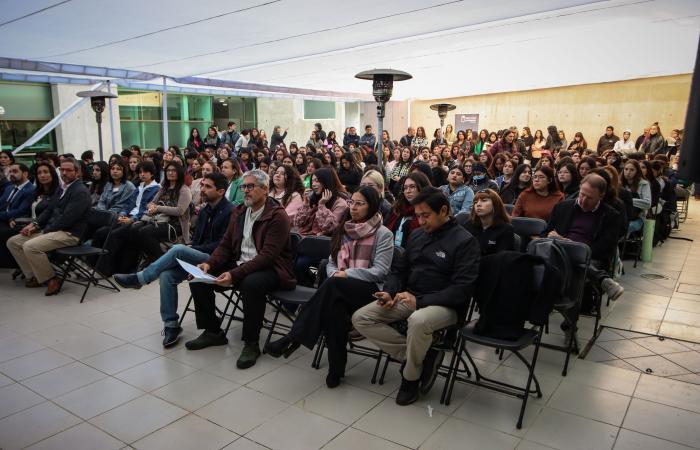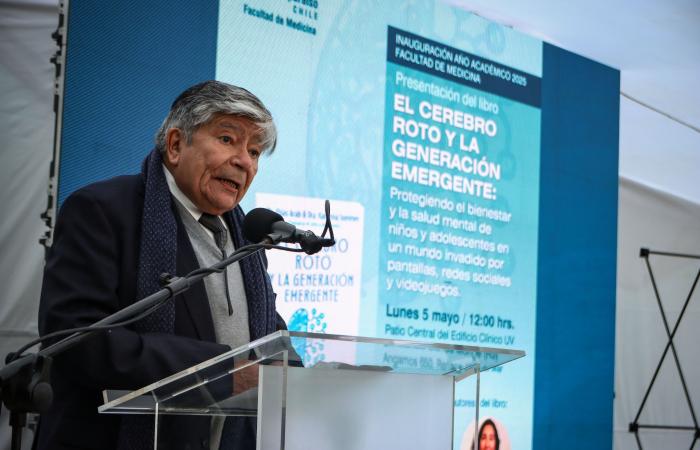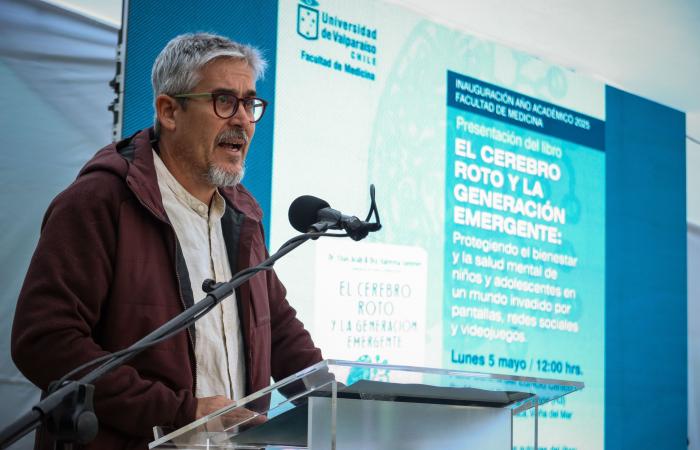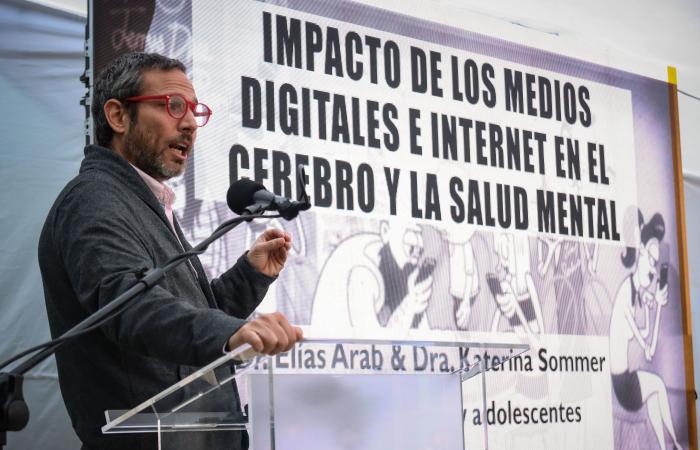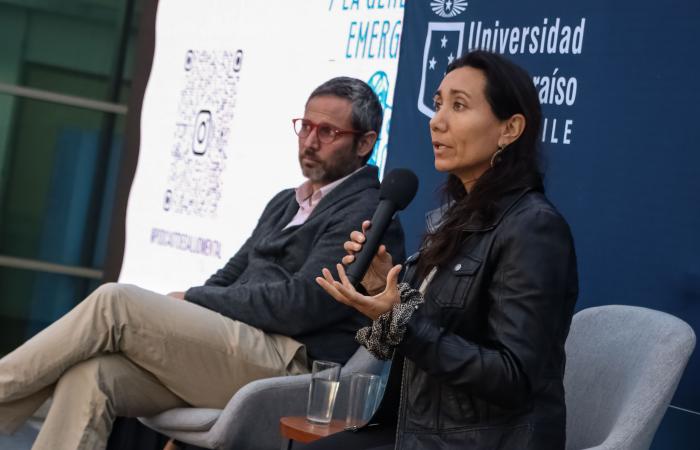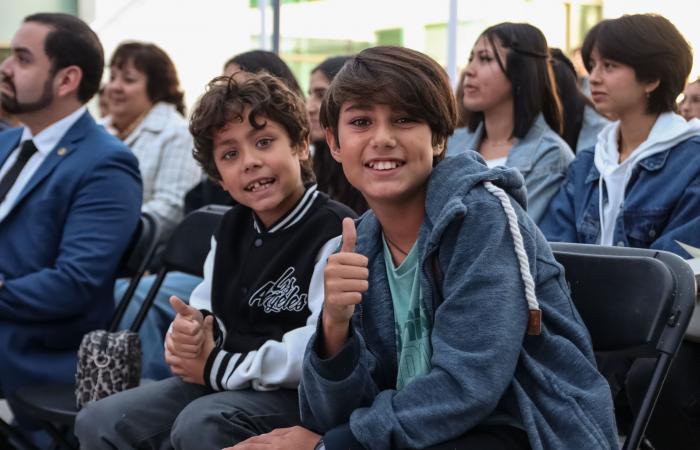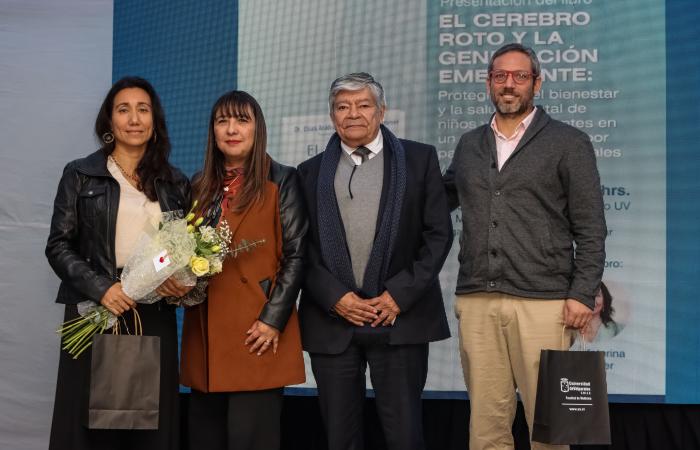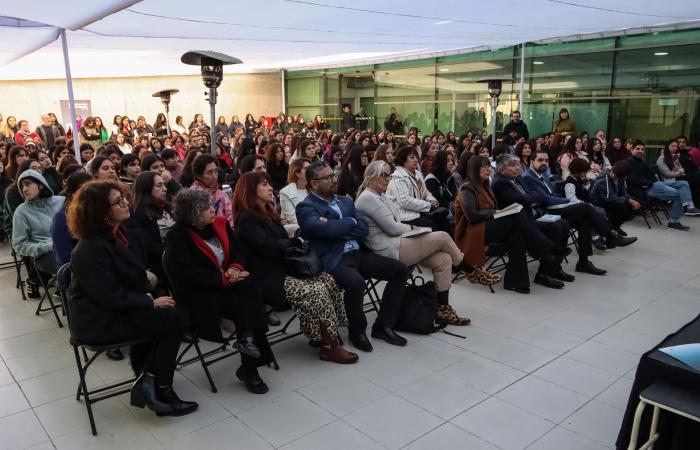Dr. Elías Arab and Katerina Sommer presented their book “The broken brain and the emerging generation”, an activity that began formal to the 2025 academic year of the Faculty of Medicine of the university of Valparaíso.
In an increasingly connected world in digital terms, in which the screens have gone from being simple work tools to become central elements of our daily lives, parents face an increasingly complex challenge: protect the mental and emotional Health of their sons and daughters and know how digital and video games.
How and how far this phenomenon affects cognitive development, family and social relationships, education, physical health and general well -being of children and adolescents and what measures can be adopted to reverse this situation and recover control over this type of technologies, were some of the questions that Elías Arab and Katerina Sommer, infant psychiatrists, tried to answer during the presentation of their book Emerging ”, an activity that began formal to the 2025 academic year of the Faculty of Medicine of the University of Valparaíso.
The meeting was held in dependencies of the Reñaca Health Campus and was headed by Dean Antonio Orellana, who on the occasion was accompanied by the vice -dean of that squad, Susana Cáceres. They attended, among other authorities, the Vice Dean of the Faculty of Social Sciences, Cecilia Cocha; the director of Equality and Diversity, Karin Berlien; the director of the San Felipe campus, Francisco Pantoja, and the director of the UV clinical services, Aníbal Navarro.
Also present were the directors and directors of the schools, career leaders and coordinators of the administrative units that make up the Faculty of Medicine, representatives of centers of practice and more than a hundred students of the undergraduate programs that are taught there.
The presence of all of them was grateful for the Dean Orellana, who in his welcome speech highlighted the possibility of initiating a new academic year with a deep reflection on an issue that he described as “the greatest importance and transcendence” for the process of training future generations and the learning model that currently applies the disciplines of health and education at the university level.
Non -technical process
The presentation of the guest exhibitors was in charge of the Professor of the School of Plvular Education and Doctor of Education Sciences, Alberto Moreno, who by way of introduction argued that the need to address the issue of the invasion of screens, social networks and video games is especially born of having to assume that there is nothing in the educational process that is eminent and exclusively technical, in the understanding that any transformation should be approached from an ethical and political position that allows to direct or redirect this process.
Therefore, Moreno argued that the authors of the book “The broken brain and the emerging generation” contribute, from their particular approach, to give an account of a series of phenomena to which, little by little, it has been generated a kind of consensus around the imperative to defend an education centered on the subjects and communities and not in technocratic paradigms, which tend to prioritize the efficiency and standardization The care and integral well -being of students.
Digital slaves
During their presentation, the Infanto Judumes Elías Arab and Katerina Sommer psychiatrists explained to their audience the negative impact that the excessive use of electronic devices such as smartphones, and applications based on the use of social networks and video games, causes in the different areas of brain development. They also referred to the effect that this causes children and adolescents, and the actions or measures that families and society should apply, with the aim of curbing or mitigating the damage caused by the superxposition to this type of technologies.
In that understanding, Dr. Arab – who graduated from the UV School of Medicine – began his intervention with an invitation to stop using the concept of “digital natives”, which is commonly used to define those who integrate the generations of people who were born after the rise of mass electronic devices, and use rather for them the definition of “digital slaves”, by the degree of dependency that they maintain with respect to those degree devices
The specialist argued in that line that various studies realize that most children and adolescents spend an average of nine hours each day in front of a screen – that of the cell phone in most cases -, in activities considered non -academic, finding a total of sixty -three hours a week before a monitor, under a permanent load of dopamine.
This phenomenon, he stressed, has significant consequences in the brain, product of the little cognitive effort that implies being in front of electronic devices provided by the screen whose excess use is associated with rapid rewards and immediate gratifications. The latter, Arab said, produces alterations in the development of the executive functions of the brain, neuronal plasticity and myelinization, which later derives in impulsive decisions and a lower regulation of emotions, favoring the decrease in sustained attention, concentration and inhibitory control.
In this sense, already a complement mode, Dr. Katerina Sommer – who, for her part, graduated from the University of Concepción Medicine – commented that this reality ends up being extremely harmful to the brain, because it is an organ that completes its development at the twenty -five years of life of a person, the prefrontal cortex being its last area to mature.
Therefore, the psychiatrist said that the excessive stimulation of the circuit of the rewards, product of the use of the screens, social networks and video games from an early age, the normal development of the prefrontal cortex and, ultimately, of the balanced reasoning.
To do?
After this gloomy diagnosis, both specialists invited the audience to take note of this situation, to be aware that it is a problem that in addition to cognitive development affects family and social relationships, physical health and general well -being of children and adolescents and, therefore, encouraged teachers and students to be activists in the search for solutions and in the implementation of actions aimed technology.
In the specific thing, they advanced and recommended some measures, among which they mentioned the need to encourage children to spend more time face to face with their friends and family (always disconnected); privilege emotional education; Generate spaces to dialogue on the risks associated with the misuse or abuse of screens devices, and develop critical thinking.
To do this, they raised options such as Awakening in children – from early childhood – the interest in reading printed books, motivating them to be in contact with nature or to carry out social activities face to face with children of their age, practice sports or physical exercises, hear music and enjoy art.
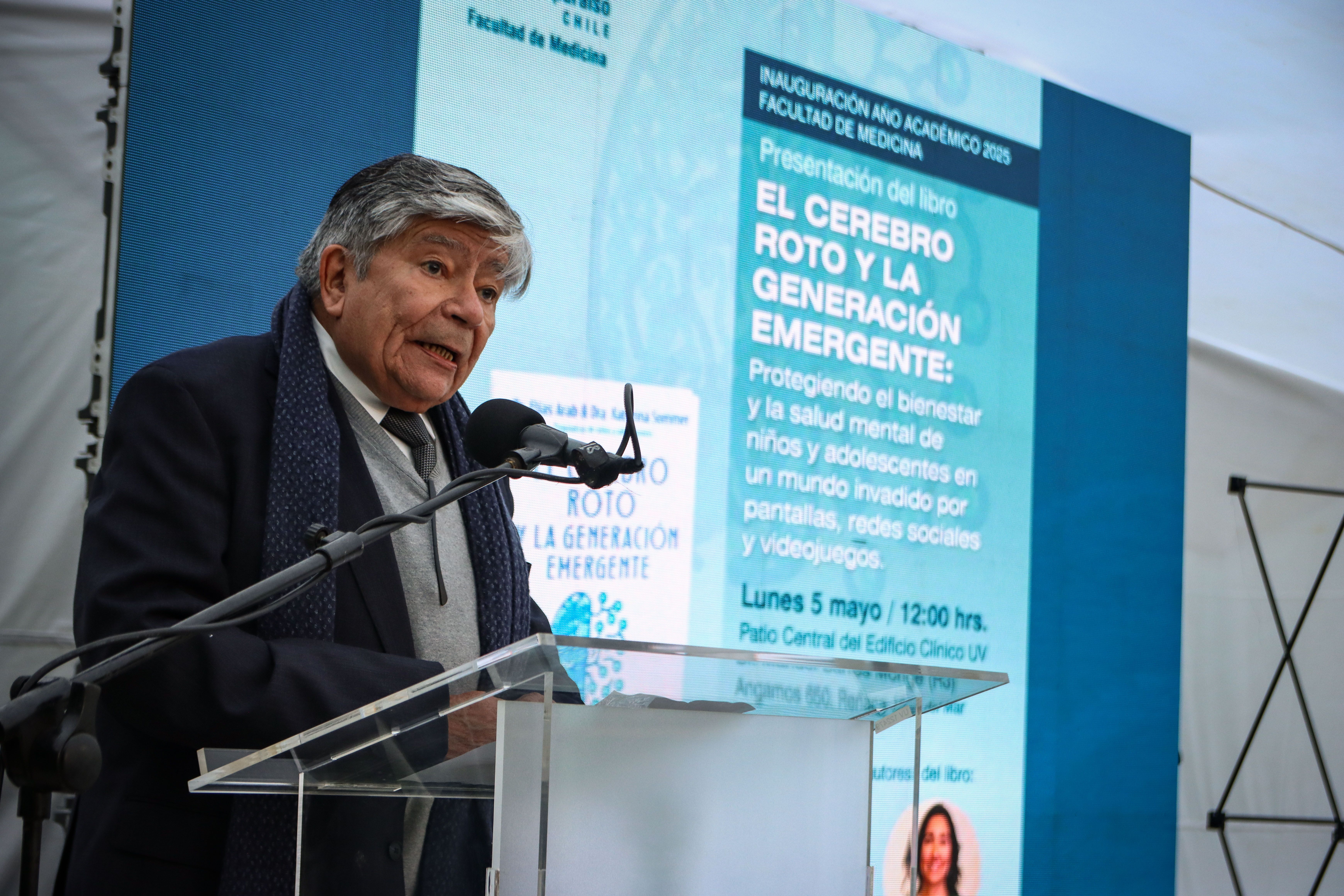
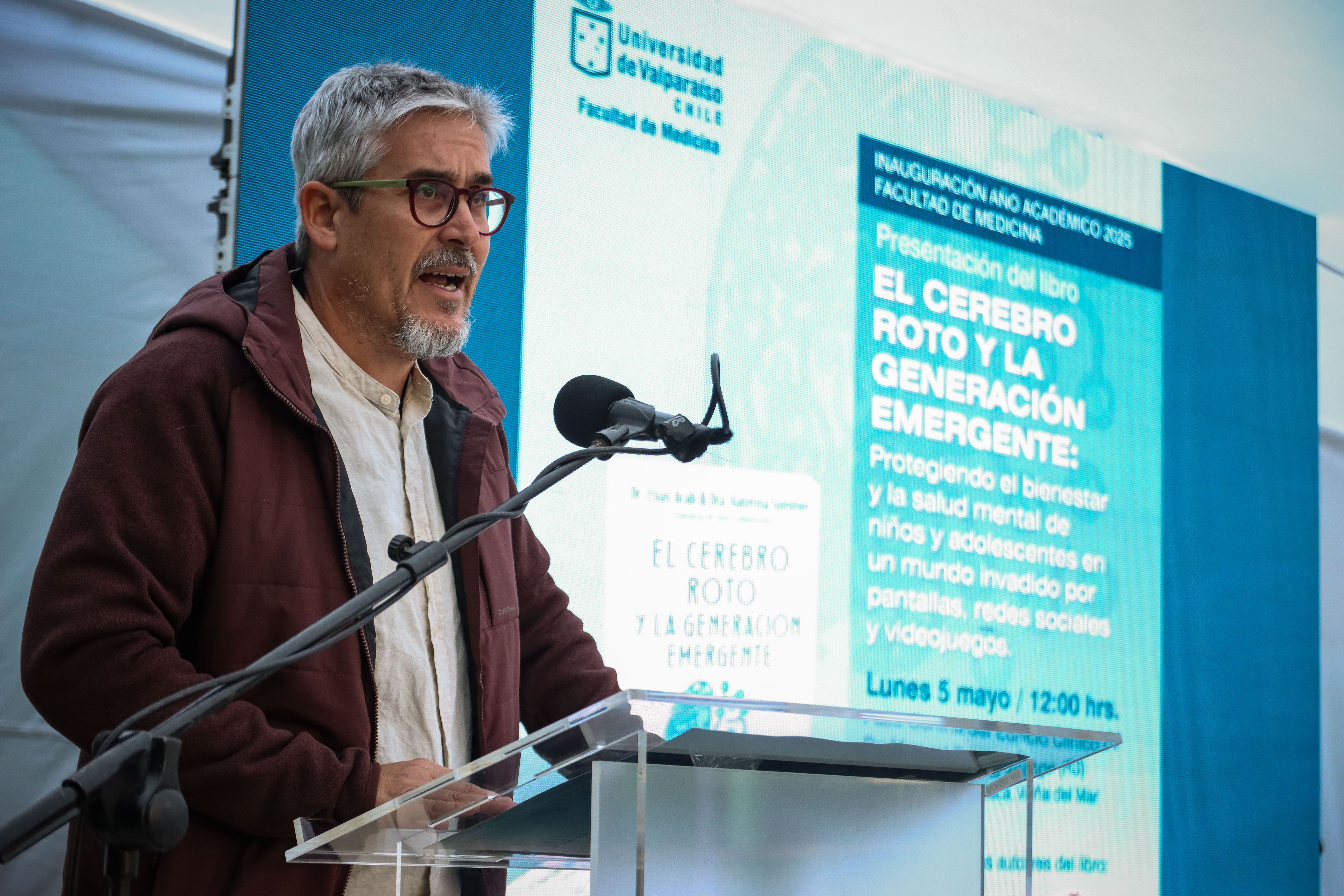
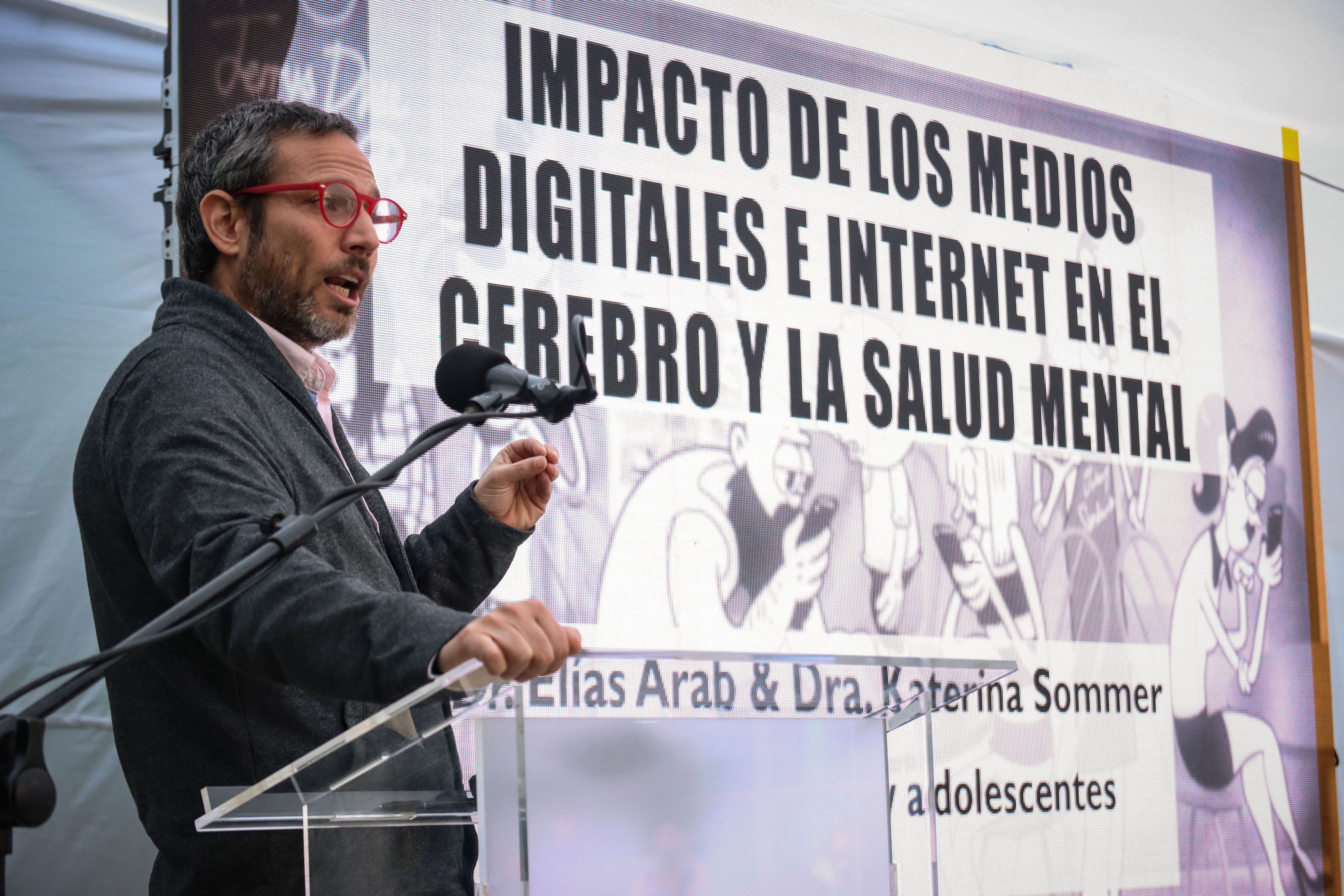
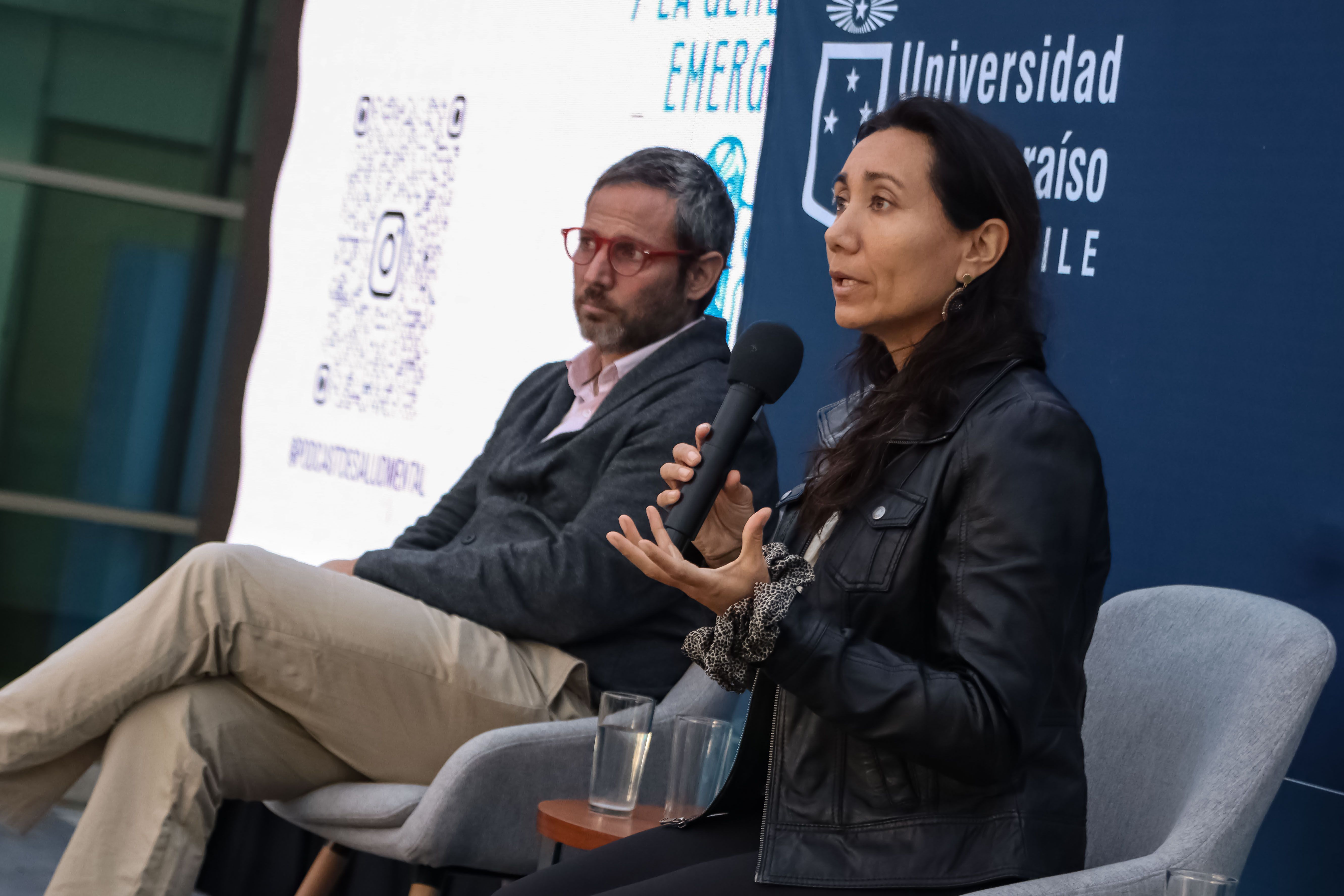
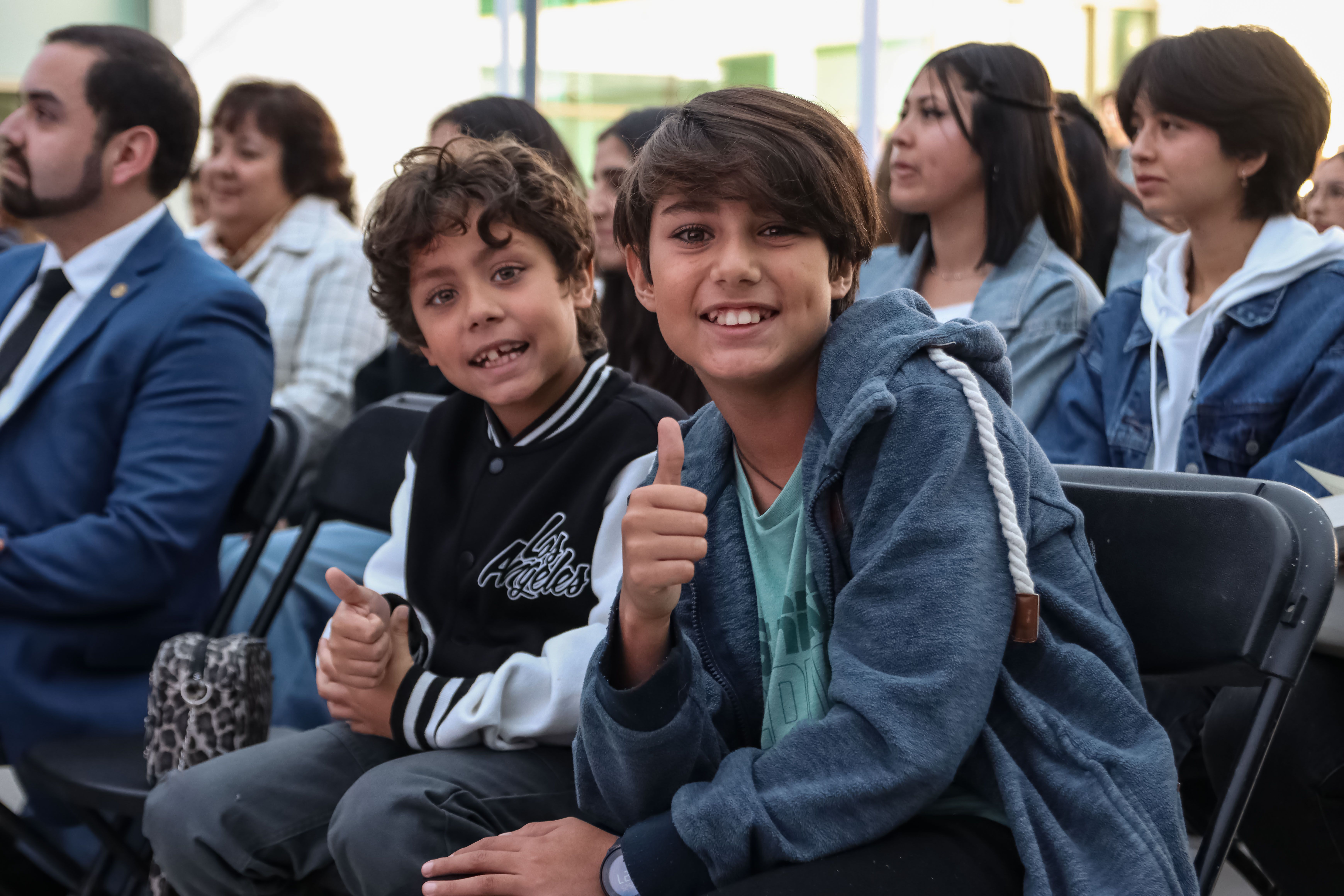
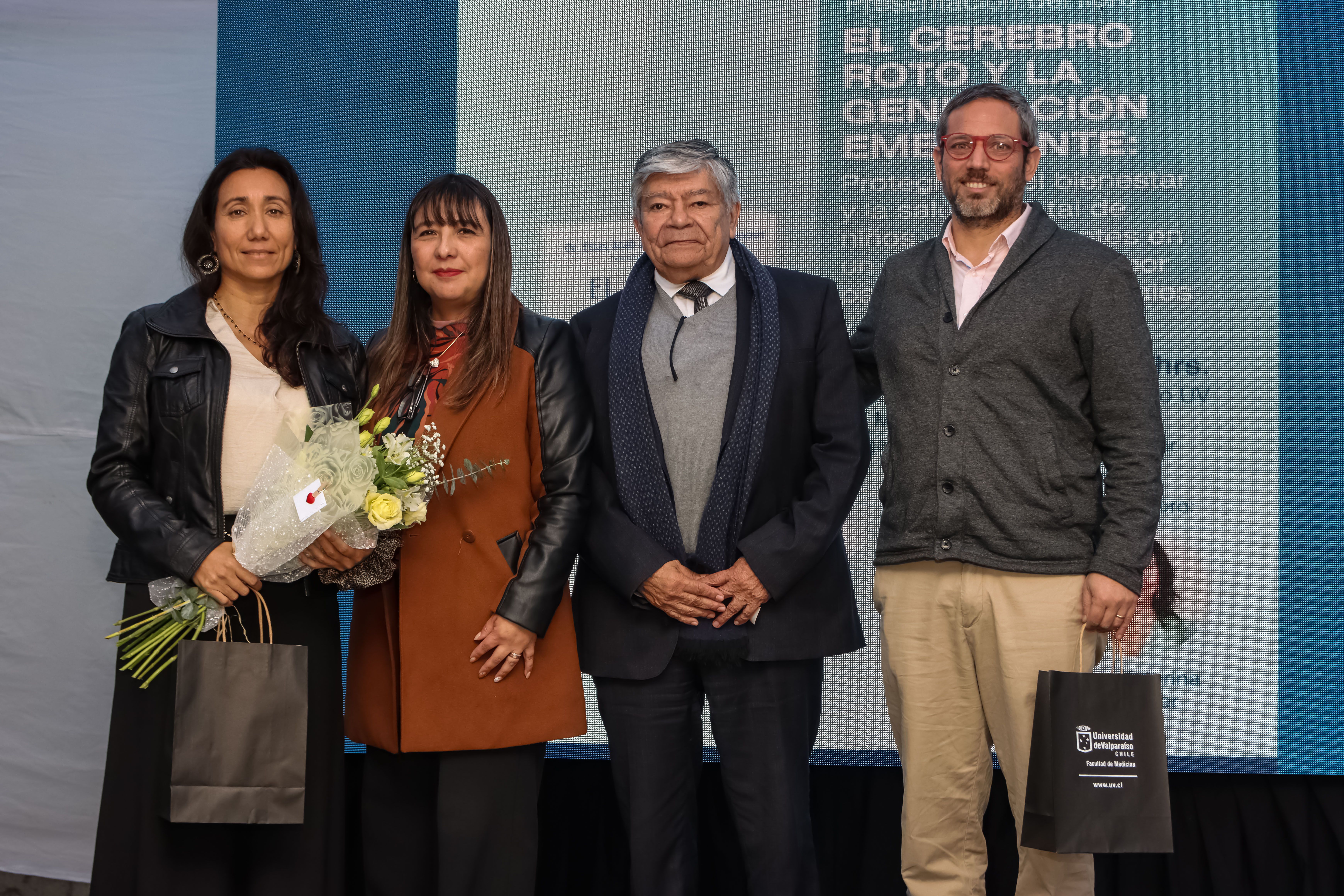
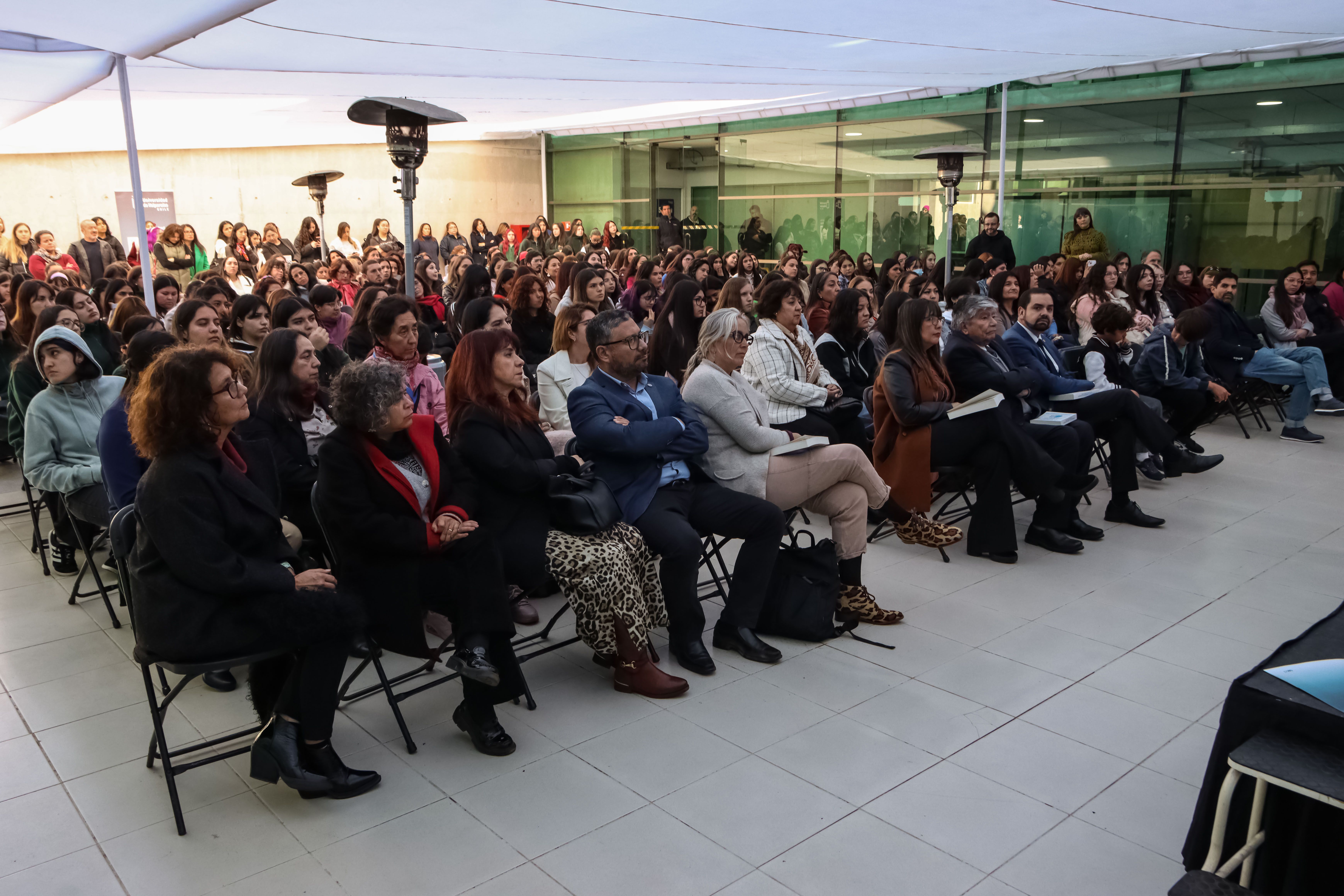
Note: Gonzalo Battocchio / Photos: Matías Salazar

